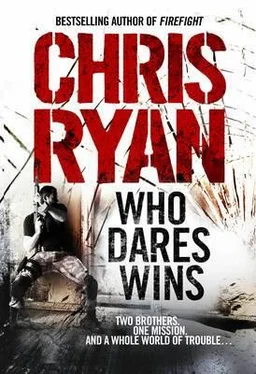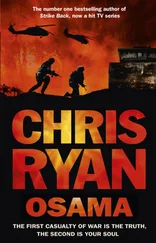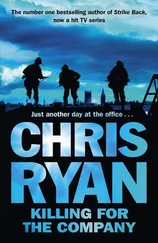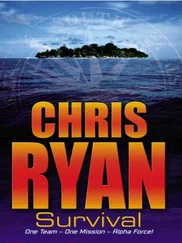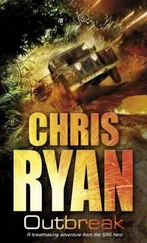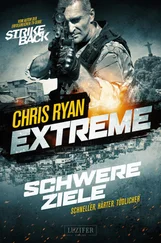‘Can you get me to France?’ he asked the director.
‘Of course,’ Surov said mildly.
‘Then tell Dolohov I’ll meet him. Three days from now. 10 p.m. The statue of Eros in Piccadilly.’ He stood up and made to leave.
‘Sit down, please.’ A hint of steel in Surov’s voice.
Jacob hesitated, then retook his seat.
‘You have not been to the UK for some time.’
‘Six years.’
‘Many things change in six years. We informed you of your mother’s death. You were wise enough to stay away, not to let sentiment cloud your judgement.’
Jacob remained silent.
‘You will continue to do the same, I hope.’
Again, silence.
‘Your father is unwell,’ Surov said. Jacob could sense he was waiting for a reaction; he gave him none. Surov handed him a photograph: a bleak-looking building with lots of cars parked outside. Jacob thought he recognised it. ‘Very unwell. He is in residential care here. I am telling you this in case you feel the urge to go asking questions. The urge to hunt him out. You do not need me to tell you that this would be a very bad idea.’
Jacob put the photograph back down on the table. ‘He’s dead to me,’ he told the Russian.
Surov reclaimed the picture. ‘Good,’ he said. ‘Very good. We will supply you with a passport and tickets to France within the hour. You need money? We will arrange it. You will be on the next flight out. Is there anything else you need from me?’
Jacob shook his head. ‘Nothing else,’ he said, before turning and leaving the director of the FSB alone with his thoughts.
*
Jacob Redman had not been gone more than a minute when there was another knock on the door of the office of Nikolai Surov. ‘ Prikhoditye ,’ the director intoned. ‘ Come in. ’
The man who entered was a good deal younger than Surov. He wore a neat but inexpensive suit, though the tidiness of his clothes was more than offset by the unruliness of his hair. He had sharp eyes and an unsmiling face. Surov indicated that he should sit down, but the younger man preferred to stand.
‘You were listening, Ivan?’
Ivan nodded. ‘Of course.’
Surov raised an eyebrow to encourage Ivan to continue speaking.
‘I do not trust Jacob Redman,’ Ivan said. ‘I have never made a secret of that.’
Surov inclined his head. ‘Of course not,’ he accepted. ‘But then, you do not trust anybody. That’s why you are good at your job.’
If Ivan took Surov’s comment as a compliment, there was no indication of it on his stony face. ‘I have a friend,’ he said. ‘He got himself a new woman. She left her husband for him. And now she is cheating on my friend. I asked him if he was surprised. He said, “Not really.”’
Ivan had earned the right to speak his mind, in Surov’s view. He had a natural aptitude for intelligence work and was running networks all over the world that were of paramount importance to the FSB. One day, Surov knew, if politics didn’t get in the way, Ivan would be running the service.
‘That’s a charming parable, Ivan,’ he said with a half-smile. ‘I suppose it has some sort of relevance to our discussion.’
Finally Ivan took a seat. ‘Jacob Redman betrayed his country. That makes him untrustworthy by definition.’
Surov pressed his fingertips together. ‘That is one way of looking at things,’ he conceded. ‘But there are others. Jacob Redman is, I think, more complicated than you imagine.’ He stood up and started to pace the room. ‘Your friend’s lover,’ he asked. ‘The one who is cheating on him. I wonder what her former husband thinks of her?’
No reply from Ivan.
‘He hates her, I would imagine. Perhaps he wishes her dead, I don’t know. Make no mistake, Ivan. Jacob Redman hates his country. He served them well, but he was badly treated. Humiliated. Oh, I do not blame them – the British, I mean. Some things are more important than the embarrassment of a soldier, no matter how good he is. But the British made a dangerous enemy in him. Outcast by his country and outcast, too, by his family. Jacob Redman is clever and he is ruthless. His only allegiance now is to the money we pay him.’ Surov stopped pacing and looked directly at Ivan. ‘People find it very hard to question their allegiance to money. And you cannot deny that Jacob Redman has proved his worth to us many times over.’
‘In my opinion,’ Ivan replied gruffly, ‘that only means he has good cover.’ He changed the subject. ‘You would really have Dolohov eliminated?’
Surov did not allow any emotion to cross his face. ‘If he has been compromised, I see no other option. I would regret it deeply, but he has too much information that we do not want falling into the hands of the British.’
‘The Georgian operation?’
‘No. He knows something is planned, but not who, or when. Certainly he does not know it so soon.’
‘And Redman? It is one of his recruits that is preparing the assassination; but does Redman himself know why we are ordering it?’
‘Of course not,’ Surov replied. ‘The British have a phrase: never let the right hand know what the left is doing. It is important always to remember that in our work.’ He smiled again. ‘But you know all this, Ivan. You don’t need me to remind you of the basics.’
On one wall of Surov’s office was a map of the world. He approached it and, for a long moment, found himself staring at the thin line that marked the Russian-Georgian border. When he spoke again, it was almost to himself. ‘The Kremlin will not permit the British to interfere with affairs so close to our border. They are fools to try. The operation will occur in five days’ time.’ He smiled. The twenty-sixth of May. Georgian Independence Day. A celebration for these people.
He turned back to Ivan. There was a glint in his eye now. ‘This will be Redman’s last operation for us,’ he announced suddenly. ‘He has served us well, but there comes a point when people like him start to have an inflated sense of their own importance to us. I will let him deal with Dolohov and after that, Ivan, you may dispatch one of your people to deal with him however you see fit. That should put your mind at rest, should it not?’
Ivan nodded.
‘Good,’ said Surov. ‘See to it that Redman has everything he needs. And keep me informed of any developments. I want to know exactly what’s going on with Dolohov. And the Georgian operation must not fail, Ivan. It’s too important to our security for that.’
Silently, Surov took his seat once more and picked up the papers he had been reading before Jacob arrived. Ivan understood that the meeting was over. He stood up, and left without a word.
Time was passing painfully slowly. Sam had kept the curtains shut everywhere in the flat, so when day turned into night it was barely noticeable.
Dolohov was crucial to Sam’s plans. But he was fading on account of his wounded hands, so Sam did his best to patch the Russian up. The codeine tablets had run out, but he found clean gauze and tape; he tied Dolohov to the chair once more before applying it, and he allowed the Russian a little alcohol at regular intervals to keep the shock and the pain at bay. He found bread in the kitchen, and cold meat. There was tinned food too – stews and soups, thick Eastern European stuff. Sam didn’t want to stay here any longer than he had to, but he needed to wait for a response and he was prepared to dig in for as long as that took.
Dolohov slept sitting down. Sam allowed himself the occasional bout of shut-eye too – he hadn’t slept since the flight back from Bagram and was feeling it – but not before checking that the Russian was firmly tied to the chair. He kept both handguns on him at all times. Dolohov was exhausted and in pain, but he was a sneaky little bastard and Sam didn’t trust him not to have a go.
Читать дальше
